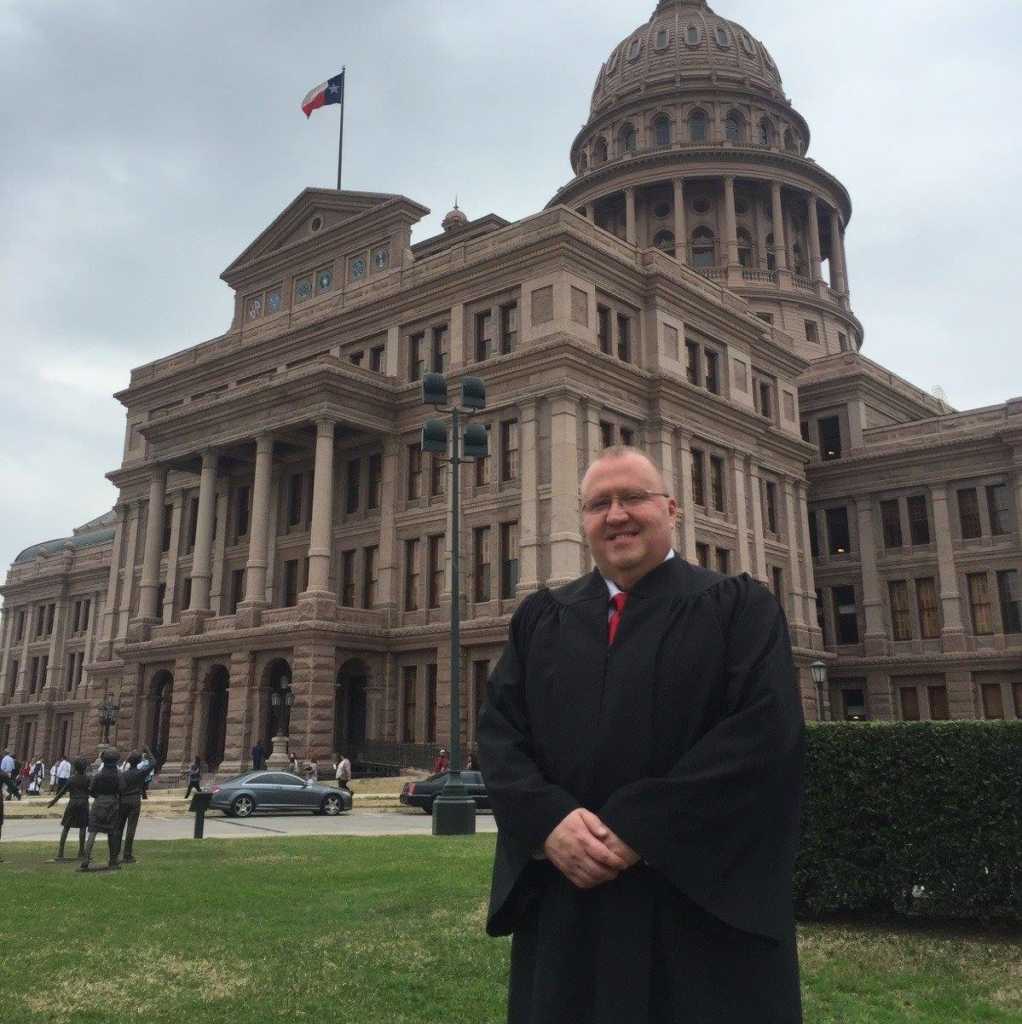A law firm defending a Texas judge has argued that he cannot be prevented from saying prayers before conducting his court session. Last year, the Freedom From Religion Foundation (FFRF) filed a lawsuit against Montgomery County Justice of the Peace Wayne Mack over his practice of beginning each session with prayer.
The atheist watchdog group filed the suit after a failed appeal to the state’s Commission on Judicial Conduct.
READ: ‘Not the Solution’: Controversial Assisted Suicide Bill Passes Hawaii State Senate
The lawsuit states that “shortly after assuming the office of Justice of the Peace on May 1, 2014, Judge Mack implemented the practice of opening each court session with a prayer delivered by a guest chaplain,” according to Fox News. “The guest chaplain then stood and read from the Christian Bible for five to eight minutes, directing the reading to those present in the courtroom. After the five-to eight-minute sermon, the guest chaplain asked everyone to bow their heads for a prayer. During the prayer, Judge Mack did not bow his head, but observed those in the courtroom.”
In an amicus brief filed last week, First Liberty Institute, who is representing Mack, makes the case that Texas law does not allow county authorities to dictate how Mack begins his courtroom proceedings.
“… under Texas law, the Commissioners Court of Montgomery County lacks authority or control over Judge Mack’s practice of opening his courtroom proceedings with prayer,” the brief states. “Plaintiffs … are asking this Court to order the County to take action — stopping the chaplains’ invocations — that it lacks authority to take.”
First Liberty counsel Chelsey Youman said that it was a “shame” that FFRF felt the need to “waste taxpayers dollars” by “forcing Montgomery County to defend something the Supreme Court of the United States has twice said is legal.”
The controversy is centered around Judge Mack’s creation of a voluntary chaplaincy program. He allows volunteer chaplains to open his courtroom ceremonies with a brief invocation and the pledge of allegiance in order to honor their service, according to First Liberty.
“The chaplaincy program includes leaders from multiple faiths, including Christian, Buddhist, Hindu, and Mormon religious leaders. In January, a federal district court judge allowed the suit against Montgomery County to continue even after plaintiffs dropped Judge Mack from the lawsuit,” the firm noted.
Judge Mack has an extraordinary story, going from a janitor to a justice of the peace.
“I always tell people my memoir is going to be called, ‘From Janitor to Judge and all the mess I cleaned up along the way,’” Mack once said, according to Community Impact. “The highest honor that any community can give an elected person is their trust, and I consider it a huge honor for me to be in this position of public service.”
Back in 1985, Mack moved to Texas to take an unpaid internship in a church youth department. To make ends meet, he took a job as a night custodian for Montgomery County. Over time, he was promoted to foreman, supervisor, assistant director and director of building custodial services.
Mack then attended and graduated from the Lone Star Community College Police Academy and began working for the Precinct 1 constable’s office, where he was promoted to captain of the reserve division.
“I had been asked for almost 20 years to seek public office,” Mack said. “But for 20 years, the only office I was interested in serving in was justice of the peace because that’s the one position where you can literally make a difference and help people every single day.”
Now, Mack is focused on changing the way the justice system approaches the area of mental health. He has been overwhelmed by the number of suicides recorded in Montgomery County, and is seeking to get increased funding for mental health services in his community.
“We’ve got to stop pretending that suicide doesn’t happen in our community,” Mack explained. “The occurrence of suicides is a trend we’ve seen increase in our community—and some people argue that it’s because our population has increased—but in my opinion, if we as society accepts that as the norm—that’s wrong. One suicide in our community is too many.”
(H/T: First Liberty Insitute)



